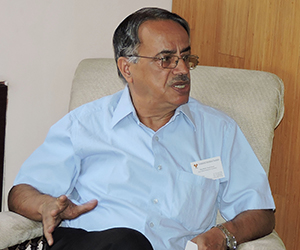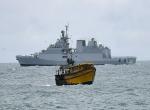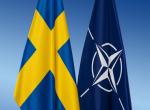Afghanistan was the main focus of the Shanghai Cooperation Organisation (SCO) Summit held in September this year at the Kyrgyz capital of Bishkek. Though there was some distraction caused by the Syrian crisis with all the members supporting non-intervention in the affairs of a sovereign country yet the Afghanistan situation received the most attention from both the members and the observers. President Hamid Karzai has been seeking the support of SCO members since he attended the SCO summit for the first time in 2004. It was only last year that Afghanistan was admitted as an observer.
During all such summits, Karzai has been emphasising on the relevance of Afghanistan as an important link between Central Asia and South Asia and the need to bring peace and stability to Afghanistan, especially in the post 2014 scenario when the U.S. and other foreign forces would be leaving the country.
The geo-strategic salience of Afghanistan is underscored by the fact that it is a land bridge between Iran, Central Asia and South Asia; Iran lies to its west, Pakistan on the east and south, and the central Asian republics of Turkmenistan, Uzbekistan and Tajikistan to the north. With control of Afghanistan comes control of the land routes between the Indian subcontinent and resource-rich central Asia, as well as of a potential corridor to Iran and the Middle East. Thus, stability and peace in Afghanistan offers tremendous potential for intra-regional trade and economic prosperity.
When American forces launched ‘Operation Enduring Freedom’ against the Taliban regime in October 2001 consequent to September 11, 2001 terrorist attack, this step was largely welcomed by Russia, China, Central Asian Republics (CARs), India and others. Russia and China raised no objections to the US being granted air bases and logistics facilities in CAR nations since it suited their short term strategic interests. Pakistan was forced to do a U-turn in its policies. However, till now it remains a reluctant partner in US and Western nations’ endeavours in Afghanistan and its attitude to terrorism continues to be ambiguous.
The SCO had formed an Afghanistan Contact Group in 2005. However, it was only in 2009 that a plan of action for combating terrorism, illicit drug trafficking and organized crime was signed. Yet, other than some bilateral aid from individual members of the SCO grouping, there is little evidence to show that any meaningful efforts have been directed by the organisation towards achieving stability and security in Afghanistan. The US and western nations, even when they talked about a regional solution, were not ready to give a major role to the SCO.
When US President Barack Obama had unveiled his new Afghan strategy in early 2009, he was able to get Russia and central Asian countries to provide transit routes to Afghanistan. Obama had also stated that he would move towards pressing the ‘reset’ button in its relations with Russia, a major driver of the SCO. In fact, the US representative at SCO summit of 2009 in Yekaterinburg Mr. Patrick Moon had commended the SCO’s joint action plan on Afghanistan. However, over the years, the re-set initiative of Obama seems to have lost steam, especially so after the return of Putin as President. Nevertheless, safe passage of withdrawing troops from Afghanistan remains the chief concern of the US and its allies.
Currently, even though the US and NATO forces use supply lines to Afghanistan through Russia and Central Asian countries, differences between the US-NATO combine and Russia continue to exist.
In 2011, at the SCO’s Astana Summit, Karzai had observed that Afghanistan “expects real cooperation with the SCO countries in combating the threat of terrorism and trafficking in arms and drugs.” He was looking forward to SCO members for investments in his country for exploitation of mineral resources. Kazakhstan President Nursultan Nazarbayev, the host, had observed “The SCO believes with good reason that Afghanistan holds the key to the future of the entire region.”
Again at the SCO summit of 2012, a similar formulation was articulated. The SCO meet stressed on stepping up bilateral and multilateral cooperation to jointly combat terrorism, separatism and extremism, battle illicit trafficking in drugs and weapons and other transnational criminal activities, address illegal migration and meet the new threats and challenges in other security fields.
The 13th SCO summit held in September this year at Bishkek again underlined the significance of supporting Kabul’s efforts in bringing peace and stability to Afghanistan. President Almazbek Atambayev of Kyrgyzstan who chaired the summit while speaking about the Afghanistan situation observed that the activities of terrorist and extremist groups are still on the rise in Afghanistan and called on the SCO member states to continuously support Kabul in its effort and determination to revive the country. Karzai in his speech stated thus, “We know that, while our friends may come from all corners of the world, our true security and prosperity fundamentally depend on the region that surrounds us. Therefore, we are committed to further strengthening our relations with the Shanghai Cooperation Organization and to work constructively with all the Member States towards a common vision for peace, security and prosperity”. He went on to stress that the region must not expect that NATO or ISAF or the United States will deliver it from all the challenges that it faces. It was important to recognize that fighting terrorism and radicalism in the region is primarily the responsibility of the region.
During the summit, India expressed its concerns that arise out of the evolving situation in Afghanistan. Addressing the SCO meeting, India’s External Affairs Minister Salman Khurshid stated that “India strongly believes that Afghanistan can successfully complete the security, political and economic transitions in coming years and regain its historical place as a hub for regional trade and transit routes. However, this presupposes fulfillment of pledges made by the international community for security and civilian assistance to Afghanistan and non-interference in Afghanistan’s internal affairs. We see SCO as an important body that can offer a credible alternative regional platform to discuss the challenges related to Afghanistan.”
Given the nature and charter of the SCO, the grouping is more comfortable in dealing with threats and challenges emanating from Afghanistan that do not involve military intervention or sending of troops to Afghanistan. Rise of drug trafficking that has been affecting CARs, Russia and now even China has been viewed very seriously by the SCO members. It has also been reported that some of the radical groups like Islamic Movement of Uzbekistan and others are congregating in Northern Afghanistan waiting to take advantage if the security situation in Afghanistan deteriorates further.
In all the SCO Summits held so far, counter-narcotics and anti-terrorism discussions have received priority even while economic and other issues find their due place. China, which is one of the major players in the SCO, has again this year stressed on the need to fight three evils of “terrorism, extremism and separatism”. Last year China had signed a strategic partnership agreement with Afghanistan. China has also formed a trilateral grouping of China, Afghanistan and Pakistan to address its concerns about dealing with challenges of a post 2014 scenario in Afghanistan. Even Russia has formed a quadrilateral grouping of Russia-Tajikistan-Afghanistan-Pakistan to address concerns about the Afghanistan situation. The moot point is that whether all such plethora of groupings and sub-regional dialogues help the process of moving towards security and stability in Afghanistan. While, as a principle, any effort to ameliorate the situation in Afghanistan should be welcome, such endeavours would more likely have the effect of diluting the unified response under the aegis of the SCO. Further, such efforts also reflect the competing agendas of the regional players which would militate against moving towards a regional solution.
Despite many years of deliberations on Afghanistan issue, the SCO has not come out with any concrete plans or strategies to deal with post 2014 situation. In fact, it has failed to evolve any suitable structures, processes or mechanisms to deal with instability and insecurity in Afghanistan which has the potential to threaten the member nations. Other than some limited civil and military aid and development of some infrastructure, no long term plans for bringing peace and stability in Afghanistan have been unveiled. Even though Russia and China would like to see the U.S. and other foreign troops leave Afghanistan yet they are concerned with ‘Zero Option’ of the U.S. forces. Further, SCO is unlikely to intervene militarily despite the fact that it is apprehensive of spillover of extremism, radicalism and terrorism from an unstable Afghanistan in post 2014 scenario. SCO possibly is looking for an all-inclusive framework under the auspices of the UN that should help Afghanistan in post 2014 era. Thus, at the current juncture prospects for a regional solution do not look bright.
Published Date: 15th October 2013, Image source: http://onebigphoto.com










Post new comment